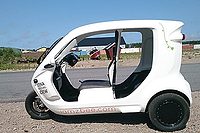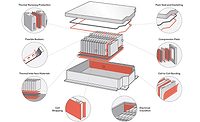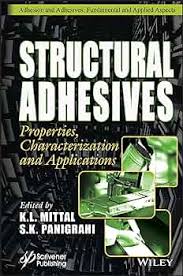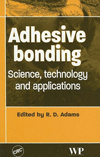PANACOL: UV Adhesives for Electric Vehicle Applications
Panacol’s new flexible adhesives reportedly enable vibration-resistant connections and have a low ion content.

Panacol recently announced that it has developed specially formulated UV adhesives that protect welded joints on cell contacting systems and battery packs of electric cars from corrosion. The flexible adhesives reportedly enable vibration-resistant connections and have a low ion content.
High-performance cell contacting systems (CCS), which combine individual lithium-ion battery cells for hybrid and electric vehicles to form battery packs, are often connected by welded strands or wires. To protect these welded joints from corrosion, Panacol reports that it has developed low-ion UV adhesives that are applied as protective coatings. These adhesives provide additional mechanical support when subjected to vibrations and can compensate for thermal expansion of the different materials.
Vitralit® UV 2113 and Vitralit UV 2114 adhesives are reportedly characterized by high adhesion to many materials and meet the requirements of the automotive industry in terms of media and temperature resistance. The rheological properties of both Vitralit UV 2113 and Vitralit UV 2114 can be adapted to individual customer requirements. Fluorescent adhesive variations for optical process control are also available.
In just a few seconds, these adhesives can be cured with light in the UVA or visible range. Both gas discharge lamps and LED spot systems can be used for curing.
For complex CCS geometries with shadowed areas, the company offers dual-curing Vitralit UD 8050. After UV irradiation, this ion-pure acrylate adhesive post-cures in the shadowed areas by reacting with humidity in the air.
Additional details are available at www.panacol.com.
Looking for a reprint of this article?
From high-res PDFs to custom plaques, order your copy today!








